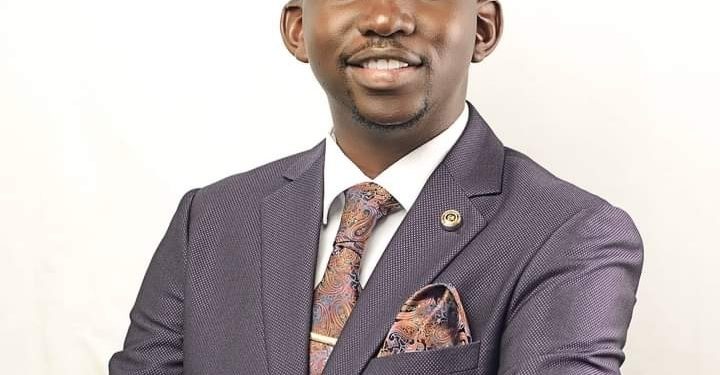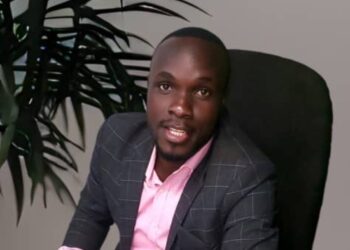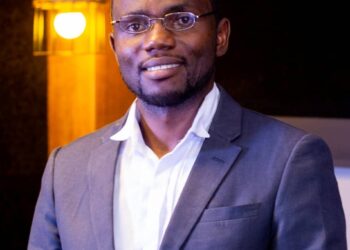It is 1966! He sits back and ponders on an 1868 London periodical on the infamous “Birmingham scredrewer”. That is Abraham Maslow. He summarizes my thoughts in just one statement in his book The Phycology of Science, “If all you have is a hammer, everything looks like a nail.” That’s the major lesson of Uganda from this plan-demic, scam-demic sorry I meant pandemic.
Uganda’s history has been mainly founded on a militaristic approach manifested through the lack of peaceful transfer of power among leaders but that’s not the point. 1966 was a historically turbulent year where Uganda experienced the abrogation of its constitution by President Obote. This led to the collapse of the entire constitutional order, attack of the Lubiri, exiling of the Kabaka. Oh, the musings of 1966 by Maslow. The leaders had a hammer and all problems were nails.
Fast forward to 2021, Charles Maurice de Talleyrand’s voice loudly reechoes. Like the Bourbon Kings, we have learned nothing and forgotten nothing. We are armed with our hammers ready to deal with COVID-19 as a nail. We are only upholding our legacy of securitising everything because that’s all the leaders probably know.
The virus has become entangled with military metaphors and analogies, leading academics like Cynthia Enloe argue that “waging a war” against the virus is a problematic frame to use. Given that the language surrounding COVID-19 implies that the virus is a threat, COVID-19 has been placed within a security discourse and been “securitised”. By considering security as a social construction, security is a move whereby politics can transcend the established rules of the game, enabling and justifying the use of extraordinary suppressive measures like lockdowns in our case. A particular issue is securitized when a security actor (such as a global political leader or even a national leader) presents it as an existential threat to a relevant audience who accept this securitising move.
Some academics have argued that modern warfare and medicine are symbiotic and homologous as and such, COVID-19 must be seen as a continuation of this historical trajectory which has developed narratives of communicable diseases as security threats. The securitisation of historical global heath crises such as HIV/ AIDS, the H5N1 Avian Flu, and SARS have become precedents, enabling global political leaders to effectively position COVID-19 within a security discourse.
At the level of international institutions, the WHO (eternally worshipped by the Ugandan government and health experts) has previously engaged in securitising moves by using the logic of security to frame infectious diseases, which foregrounds the case of COVID-19. During a press briefing, the WHO Director-General Tedros Adhanom used vocabulary such as “efforts on many fronts” and “operational tool(s),” encouraging international solidarity throughout such difficult times. Similarly, the UN Secretary-General António Guterres commented in a Tweet that we all “face a common threat” from the virus. These example speech acts by leaders of international institutions display how COVID-19 has been positioned within a security discourse as is it presented as a threat to the international community.
In Uganda, we have often heard the President on several addresses emphatically state that COVID-19 is a war that we must win at all “costs”. Now, cling to you hammer and let’s hit every nail on its head. It’s a rollercoaster journey of history, science and a brutally candid discussion ahead of you.
HISTORICAL PERSPECTIVE: ANY LESSONS?
Einstein’s definition of insanity is doing the same thing over and over, expecting different results. Should we grapple in the dark confines of historical perspective or make bold steps to shape our own narrative as a nation? How exactly did we get here? Let’s broaden the discussion.
Concentrating on language, the connections between security and health in a broader sense are evident. Historically, military metaphors have dominated the language of medicine, leading to the narrative that medical therapies are “weapons” used to defeat disease. The shared vocabulary between discourses of health and those of security are highlighted in concepts like elimination, defence and containment. It seems natural to think we are “at war” with COVID-19. Immunologists speak of the body’s “defense” against invading pathogens. We celebrate doctors and nurses as “front-line heroes.” The book by public health expert Michael Osterholm and writer Mark Olshaker is titled Deadliest Enemy: Our War against Killer Germs. These linguistic connections underpin how security and health are inherently entwined.
Exactly 20 years ago, the Operation Dark Winter was launched in the USA. Operation Dark Winter was a war game with a difference. The scenario was an attack on the mainland United States, and ground zero was an outbreak of smallpox in Oklahoma City. The simulation condensed 13 days of a highly infectious airborne Virus’s spread into two days of realistically staged updates from the Centers for Disease Control and Prevention (CDC). This operation was credited with waking up the George W. Bush administration to the threat of pandemic diseases. In the weeks after 9/11, spores of Anthrax, a favored bio warfare pathogen, were mailed to journalists and political leaders. The simulation suddenly looked terrifyingly prescient. Biosecurity was catapulted to the top of Homeland Security’s agenda. But this came with a twist: The national biosecurity strategy was shaped by the war on terror. Now that, was a major error that defined response to pandemics. No doubt, this approach has been adopted by major countries as a response to pandemics.
In April 1884, when German microbiologist Robert Koch returned to Berlin after isolating the bacteria that causes cholera, he was given a military honor—the Order of the Crown, second class—by Kaiser Wilhelm. Seven months later, the Kaiser convened the Berlin Conference that carved up Africa among the European colonial powers. The goal of conquering the globe’s territories extended to naming their mountains and forests and classifying their peoples, fauna, flora—and microbes. Conquering disease was part of the same project: making the tropics safe for settlement by the white race. The triumphs of the colonial Pasteur Institute in sub-Saharan Africa and Southeast Asia and of the U.S. Army Medical Corps in Cuba and Panama—specifically controlling yellow fever—followed.
We can tell from a historical perspective that the global response context to pandemics has been shaped along lines of war. This war comes with a reward such as territory (from the colonialist’s perspective), war booty (from the looter’s perspective), villains (from the victor’s perspective) and all sorts of reward. (Including self-aggrandizement and a false sense of entitlement for the Ugandan context).
As Alex de Waal, Executive Director of World Peace Foundation noted “Each subsequent generation reshaped the martial metaphor.” The post-World War II “campaigns” to control malaria and eradicate smallpox and polio lost much of their colonial associations, and Africa’s fight against HIV and AIDS was presented as a continuation of liberation struggles. Any difference with COVID-19? No.
SECURITY AS LOGIC- WAR AS PRACTICE
From a panoramic view, designating the virus as a security issue is a political move which frames global health debates in ways which do not assist with the end goal of international health cooperation which purportedly, Uganda wants to align itself with. If the WHO is calling for solidarity within and between countries, then referring to COVID-19 as a war (thus encouraging the identification of enemies and use of violence) decreases the potential for a coordinated global effort in responding to the challenges the pandemic poses.
Ultimately, the securitisation of COVID-19 entangles the pandemic in the political quagmire associated with security politics; increasing tensions and insecurities within and between states, furthering inequalities and hindering a coordinated global response.
The failure of our leaders to appreciate this global context and adopt wartime rhetoric today breeds only misleading information with dire political consequences. The ultimate danger is that the war language simplifies a very complex situation, and encourages extreme and irrational actions such as unreasonable lockdowns, poorly planned social response programs like “Nabbanja’s money”, curtailing of civil liberties and outright abrogation of fundamental human rights.
WAR AS A TOOL OF FEAR
The attitude of lockdown zealots is that preventing contagion of SARS-CoV-2 is a war; a war that must absolutely be won at any cost, no less. According to this bizarre narrative, which has been mainstream since the beginning of the outbreak, becoming infected with coronavirus is the worst thing that can happen to a person.
Suffering, enslavement, imprisonment, poor health, and death are inevitable casualties in winning this holy war. There is no point to calculate if the measures to prevent coronavirus contagion are causing more harm than the virus itself because the war being waged is not to protect people, it is to defeat the ultimate enemy of coronavirus.
Most people have adopted this preposterous attitude about the pandemic. It is almost universally held in the media and government. The win-at-all-costs attitude is so pervasive that people don’t even want to hear evidence that the restrictions are more harmful than the virus. It is so absurd and extremely illogical. Clearly, all factors must be considered to determine the best course of action for an individual or society. A doctor would never prescribe a medication, for instance, whose side effects overwhelmingly outweighed its benefits citing that the only thing that matters was an improvement in the reason for the clinic visit.
In the same manner, responsible public policy must always factor in everything that affects public wellbeing, directly or indirectly. Politics being politics, more popular issues receive favorable policy attention, so public policy often does not consider all factors. However, no issue in history has hijacked policy decisions as much as COVID. Sadly, the public has bought into the self-defeating narrative that COVID mitigation is a war of greater importance than any the world has ever seen, thus all else is irrelevant.
Ultimately, this securitisation endorses fear as the perfect justification for the lockdown restrictions. The only way people will submit to totalitarianism is if there is an enemy, real or imaginary, from which they are seeking protection. The enemy may be dire poverty, a foreign army, or a rival ideology. The only criteria for the enemy is that it must make people feel deeply threatened. Knowing this, leaders throughout history have incited fear among citizens who in turn gladly gave up their rights in exchange for promises of safety.
Extreme fear impedes rational thought and makes people cling to sources of security — in this case the journalists, scientists, international health organisations, big tech companies and politicians that we idolize as heroes. Because of the reduction in reasoning ability and clinginess to false idols, it is very hard to awaken people to the lockdown scam with logic! People automatically reject anything that challenges the popular narrative. In the scared infantile state, logical thinking ceases and all that matters is obeying Mommy and Daddy. Strong lifelong values like the importance of freedom and human rights are dealt a fatal blow.
As the old political adage goes, never let a crisis go to waste. The war analogy ploy and securitisation of COVID-19 has also been instrumental in deluding the public into trusting that COVID restrictions especially lockdowns will be short-lived.
As David Davenport and Gordon Lloyd noted in their piece, How Public Policy Became War, “Presidents have discovered that declaring wars and emergencies is a way of grasping greater executive power at the expense of Parliaments. There is little time and opportunity for policy deliberation because, after all, we are at war.”
Will you still remain silent? Let’s #EndLockdownNow
The writer is a lawyer.
Do you have a story in your community or an opinion to share with us: Email us at editorial@watchdoguganda.com












